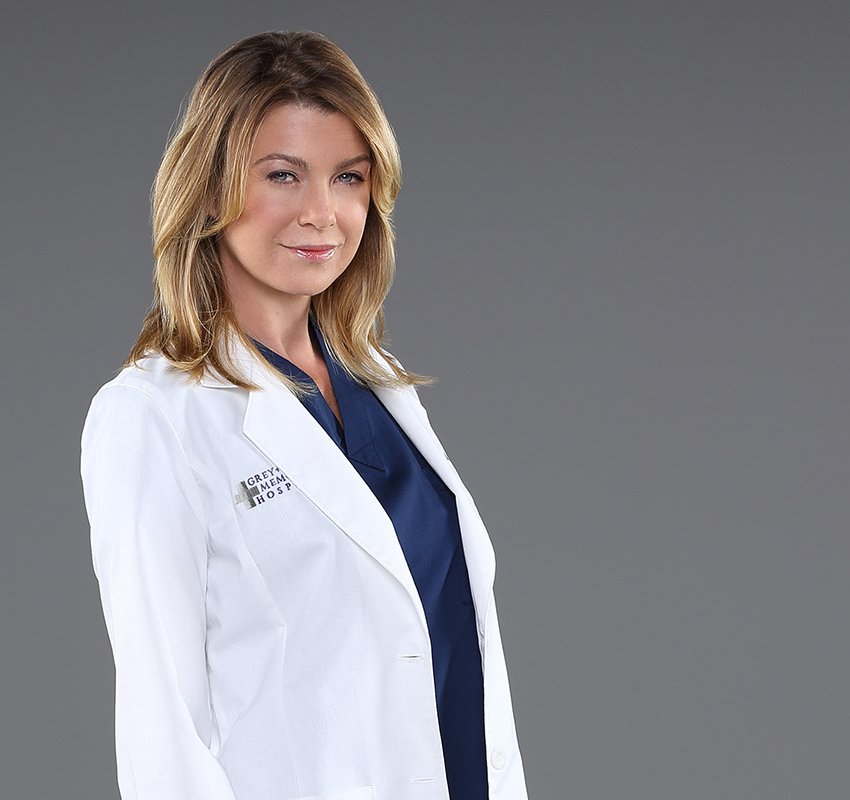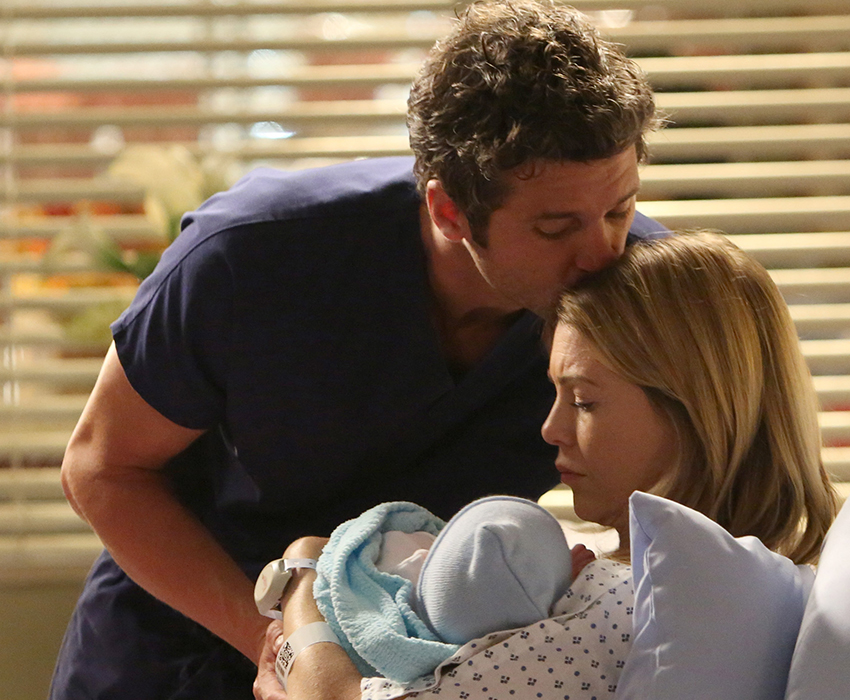The Science Behind Grey’s Anatomy

Photo courtesy of ABC/Danny Feld
Last season on Grey’s Anatomy, Dr. Meredith Grey, played by Everett native Ellen Pompeo, had testing done to see if she had the genetic markers for Alzheimer’s, the disease that her mother suffered from before she passed away. In the next episode, Dr. Bailey, played by Chandra Wilson, had to give Meredith the bad news that she did, in fact, have two of the genetic markers for Alzheimer’s.
Heavy stuff. But was any of it accurate? Is that how genetic testing really works? How do Hollywood show writers know what they’re talking about?
They ask Boston-area doctors, of course.
Through the Hollywood, Health & Society (HH&S) program at the USC Annenberg Norman Lear Center in California, show writers and producers ask doctors and other experts in their fields for information, in order to make storylines not only believable, but accurate. For the genetics storyline (and more that we can’t give away … yet) show writers contacted Ting Wu, Ph.D., professor in the Dept. of Genetics and director at the Personal Genetics Education Project at Harvard Medical School.
Wu, it turns out, gave the Grey’s Anatomy team an in-depth lesson on genetics and testing. “I was sitting in my office and [HH&S] called one day and asked about personal genetics. They asked questions like ‘what do people use it for?’ and other questions about diagnosis and prediction,” Wu says. “In the storyline, Dr. Meredith Grey’s mother had Alzheimer’s. They were interested in finding out if there are certain markers associated with certain diseases, and they asked if having such a variant might increase your predisposition for disease.”
The Grey’s Anatomy team was also interested in talking to Wu about what it would be like to start a genome sequencing center, and asked her questions regarding how it would work. “[The character] Dr. Bailey was starting a genome sequencing center at Seattle Grace Hospital, and they wanted to know how much would it cost, where would you get the money for something like that, and how quickly could it get set up. And now, I believe, there’s a genome sequencing center at Seattle Grace, which is so great,” Wu says. “It was great fun, and I could sense that they really placed a high priority on getting things right and accurate.”
Unfortunately, if you’re looking for spoilers, you won’t find any here. We’ve been sworn to secrecy. In fact, Wu doesn’t know if the information she provides will even make it on the show or what the real storyline is. Wu has no say on how the storylines unfold but, she says, using the entertainment industry to help people become aware about genetics is a wonderful thing, and she’s always happy to help.
“I often don’t know who I’m even dealing with, really,” Wu says. “After I talk to the producers and writers, I don’t know what the decisions are, or what the dialogue is, but I’m grateful to share knowledge on genetics. We hope that the public becomes more interested in genetics, too.”

Photo courtesy of ABC/Danny Feld


